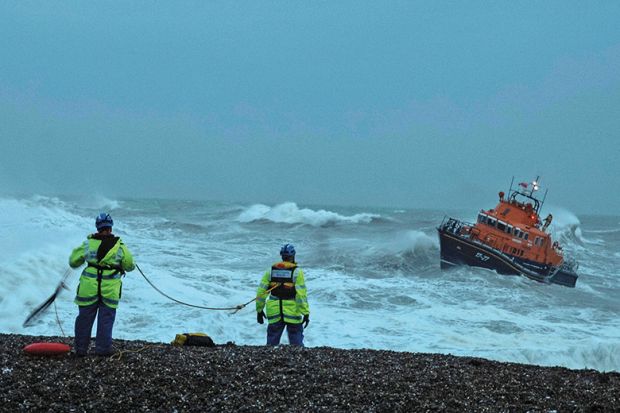As many as 40 English universities are thought to be struggling with pandemic-driven financial problems that could potentially breach their loan agreements with banks and see auditors declare concern about their ability to continue operating.
The figure of 40 universities experiencing problems with liquidity – a measure of an organisation’s ability to turn its assets into cash to meet its liabilities – and undertaking restructuring has been circulated in the sector by finance experts, Times Higher Education understands.
That could have a bearing on audit firms, who have to decide whether to sign off an organisation’s accounts with a statement that it is a “going concern” – able to meet its obligations over the following 12 months.
But if there are “material uncertainties” that put significant doubt on an organisation’s ability to continue as a going concern in the longer term, auditors are required to check that accounts disclose these uncertainties.
The troubled SOAS University of London included such a statement in its 2018-19 annual accounts. Its auditor, BDO, highlighted a section of the accounts “which indicates that as a result of Covid-19 the expected student numbers cannot be predicted with certainty, therefore indicating that a material uncertainty exists that may cast significant doubt on the school’s ability to continue as a going concern”. No such statement was included in its 2019-20 accounts, which were published recently.
The Covid crisis will leave universities facing a 15 per cent drop in international student enrolments across the sector, some suggest. While this drop is not as severe as earlier expected, the figure will be higher for some universities and deliver significant financial pain.
One vice-chancellor suggested that several universities would have such “material uncertainty” statements inserted in their accounts, which he said could send damaging signals to potential students, to staff and to lenders.
The vice-chancellor also suggested that a significant number of universities would experience delays in getting their accounts signed off by auditors and miss the deadline to submit accounts to the Office for Students, the English sector regulator, which they said would indicate which universities were in “financial distress”.
Earlier this year, the OfS said it would extend this deadline for submission of accounts by two months, from December to the end of February.
Another vice-chancellor who had spoken with auditors pointed out that going concern questions were affecting a range of third and public sector organisations, as the impact of the Covid crisis means they may have breached their loan conditions with banks – which can include requirements to meet specific liquidity thresholds.
They suggested that several universities were having to discuss loan covenants with their banks, and that some banks were looking to raise interest rates where covenants had been breached. Covenant breaches would be an area of concern for auditors.
OfS guidelines say that “a provider is required to report to the OfS if a reasonable person in the provider’s position would consider it reasonably likely that it will breach any financial covenant attached to a loan, where that anticipated breach has not been waived by the lender”.
An OfS spokesman said: “We would take this into account in our assessment of whether the provider meets our regulatory requirements around financial sustainability.”
Matt Robb, education managing director at EY-Parthenon, which advises universities, said that the higher education sector was “suffering from a pretty unique combination of circumstances”.
He highlighted the drop in international student enrolments caused by the Covid crisis, the cost of providing digital education in the pandemic, rising pension costs, the costs of spending on infrastructure and student accommodation, and the fact that universities are “still working through the challenge of being in a more competitive market”.
Those universities “most in trouble” will fall into three categories, Mr Robb said. He listed these as being small regional universities that may not have sufficient student demand in their regions and thus may not be “commercially viable”; “second or third” universities in their city; and “cusp” universities outside the biggest cities that are “not big enough to be research intensive, but have a lot of the costs” and “don’t have the heft” to attract international students in large numbers.
Sarah Randall-Paley, chair of the British Universities Finance Directors Group, offered a more optimistic assessment. She noted that “as for all sectors of the economy”, auditors working on university accounts are required “to do additional work to look at future prospects in light of the impact of Covid on business, and this may take more time for universities to prepare based on latest information and for the auditors to conclude their review”.
“The extended deadline should be achievable across the sector, I would expect, and many will meet the original timetable,” said Ms Randall-Paley, director of finance at Lancaster University.
Register to continue
Why register?
- Registration is free and only takes a moment
- Once registered, you can read 3 articles a month
- Sign up for our newsletter
Subscribe
Or subscribe for unlimited access to:
- Unlimited access to news, views, insights & reviews
- Digital editions
- Digital access to THE’s university and college rankings analysis
Already registered or a current subscriber? Login








